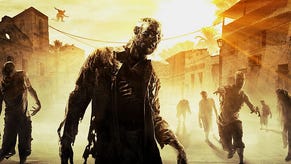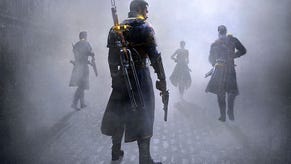The Order 1886: Short Games Aren't The Problem, Unsatisfying Games Are
Looking a game length is only one part of determining a game's value.
This article first appeared on USgamer, a partner publication of VG247. Some content, such as this article, has been migrated to VG247 for posterity after USgamer's closure - but it has not been edited or further vetted by the VG247 team.
This week's marquee game may be a bit shorter than most people expected. The Order: 1886 is Ready at Dawn's new title for the PlayStation 4, utilizing the power of the console to tell the story of an alternate reality version of London, England. While the actual London of the 19th century was concerned capital growth, population expansion, and the London Underground, The Order's London is a world of monsters, high technology, and aristocracy.
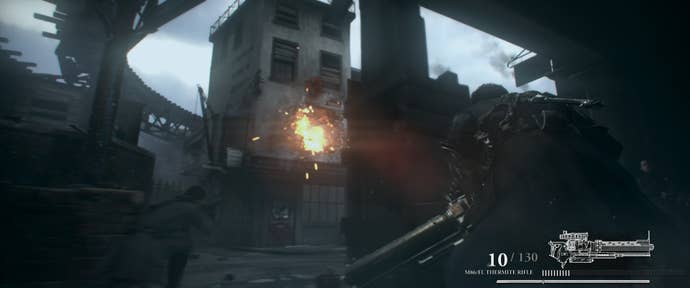
The problem came yesterday, when a Redditor with an early copy of the game claimed they finished it in 5 and a half hours. They later released an entire YouTube Let's Play of the game to back their contention. The Order: 1886 is a partially-cinematic experience, so that running time also includes extensive cutscenes. This left some people in a quandry: is a 6 hour game worth $60?
Prior to the release of the Let's Play, Ready at Dawn insisted that completing the game in such a short time was impossible, but acknowledged that perhaps a short running time isn't a problem.
"I know there are numbers out there," Ready at Dawn CEO Ru Weerasuriya told Eurogamer. "I know why the question comes up. I know numbers have been put out there that are actually not right. It's impossible to finish the game in that time, so we know the numbers are wrong."
"Game length is important," he admitted. "Every game has to take its own time to tell its story. I still remember the first time I picked up Modern Warfare, I finished the campaign in about three-and-a-half or four hours. And it was fun because they made that campaign work for that because they had something else."
I'm not here to talk about The Order: 1886 though. Jeremy is the one playing through the game for review, not me. What I do want to talk about is game length and the idea of value.
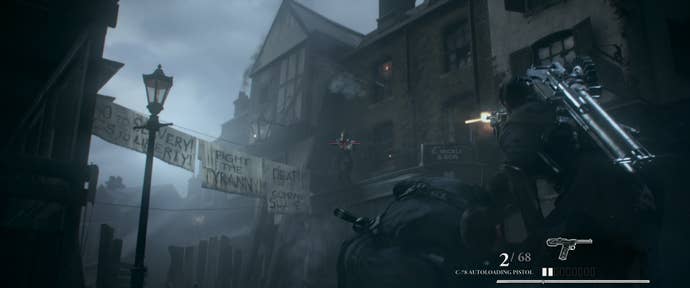
Price Is What You Pay; Value Is What You Get
The standard retail price for a video game, $60, is a lot of money for some people. When we put down that much, we want to know we're getting our money's worth. This concept of gaming value is tied in a number of other factors: How long is the game? How fun is it? Is it replayable? Is multiplayer a factor? How often do I get a game like this? What else could I have spent that money on?
It's understandable that people may be worried about the length of The Order: 1886. It's a game that has a singular story to tell and there doesn't look to be much reason to dive back into the experience once you're done. For some, that screams "rental". If there's a Redbox kiosk with the game in your vicinity or you still have a GameFly subscription, you may decide that's the way to go.
We here at USgamer have a "Lasting Appeal" section in our reviews to tackle some of these concerns because we realize it's important. I'm very cognizant of value when I'm reviewing games, even though it doesn't factor into the review itself. This is due to the variable pricing of PC games and the relative frequency of video game sales at major retailers. Finding a brand-new release at $10 isn't that hard these days. Every retail release is $60, but I constantly find myself putting games on a personal price metric, as determined by what I'd pay for a game. "That's a $40 game." "This is definitely worth full price." "I wouldn't pay more than $10 for that." I'm sure you probably have your personal metric as well. It makes sense; our money is finite and can be spent on many things.
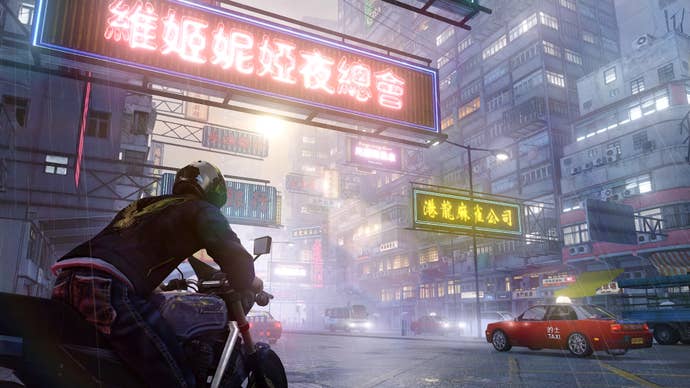
That's Just Right
The thing is, games are a product, but they're also an artistic experience. Developers have a specific story to tell or experience they want players to have. It's no different from books, television shows, or movies. When you allow for variance in length, you allow a work to find its own pace. I watched The Godfather again last night; that film clocks in at 2 hours and 58 minutes and the story works beautifully at that length. In contrast, you probably could've cut 30 mins from any of the Transformer films with no problems. The Hobbit trilogy is a perfect example of padding out a story to fill time. Fox's Sleepy Hollow was a punchy surprise last season with only 13 episodes, whereas the longer season two feels like it's lost its way.
There's a feeling of intense satisfaction when you play a game that's just the right length.
Sleeping Dogs remains one of my gold standard games of the last generation, because its lack of heavy AAA resources meant the game did not overstay its welcome. The game's story and version of Hong Kong were just the right size to tell the tale and give you a decent playground to romp in. The fact that United Front didn't have the world's biggest budget meant focus was key. There was less of the general open-world bloat, less padding around the mid-section, less useless cruft.
Two weeks ago, I reviewed Dying Light and one of my points was it felt like a 20 hour game wearing the skin of a 40 hour game. Dragon Age: Inquisition was an amazing experience, but some of the sidequests were simply filler because they lacked meaningful motivation outside of "get that XP, son!"
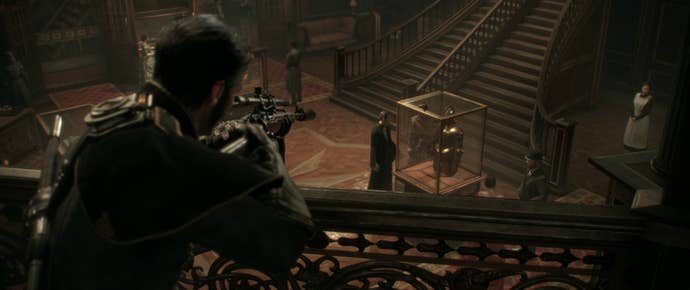
A Well Tailored Suit Will Always Shine Brighter
I'm beyond my younger days, where I could burn hours upon hours upon a single title, exploring every nook and cranny, completing every quest, recruiting every character. Now the critical path, the meat of the game, is my calling. I just don't have enough time outside of reviewable games, preview titles, interviews, and all the other books, comics, shows, and movies I want to enjoy. A short game is sometimes better than a long game. If the experience is fun, I'm fine with it coming in at 10 hours; that means the developer didn't want to waste my time with fluff. I thank them for that.
Do I want every game to be 10-20 hours? Hell no. There's room for a wide variety of game lengths. I just want everything there to be meaningful. There's room for gaming's Godfathers, stretching out to epic lengths, but there's also room for gaming's Papermans, containing a wonderful experience within a short period of time. Like any other medium, gaming is a cornucopia of sights, sounds, and feelings. Constraining them to one size is doing them a disservice. Developers realize this, even if they can't say it all of the time.
"I’m telling you right here, right now, that our game will be short. I don’t know if that means an hour or five, and if it’s going to have a fantastic replay value or not," Vanishing of Ethan Carter designer Adrien Chmielarz wrote last year. "But I know we don’t want to make a long game just for the sake of it being long."
I want developers to bend and twist what's in front of them and find the perfect length to accomplish what they want to accomplish. If Ready At Dawn felt The Order: 1886 was a 10 hour game, that's fine. It's merely a matter of making those 10 hours meaningful and satisfying. The jury is still out on the quality of The Order's experience, but worrying about the time seems like a waste. It's either just right or it's not. We'll see what players think this week.





